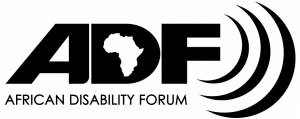
WHAT IS
WE ARE ABLE!
Co-creating inclusive governance for access to basic resources that leaves no one behind
We are able! is a programme that helps people with disabilities achieve a sustainable, fully-fledged place in their community, so that they have greater food security. By 2025, through engagement with the public authorities (formal and informal powerholders), men, women and youth with disabilities and other excluded groups, through resilient and capable local Organizations of Persons with Disabilities (OPDs) & Civil Society Organizations (CSOs) in six fragile and conflict-affected countries, are successfully influencing laws, policies, practices and norms for IMPROVED FOOD SECURITY FOR ALL

WE ARE ABLE!
PARTNERSHIP
Implementation Partners
The project is implemented by a consortium of organizations consisting of ZOA, ADF, See You Foundation, The Leprosy Mission Netherlands, VNG International and The Hague Academy for Local Governance.

- Project Details
WE ARE ABLE!
Location: Implemented (together with the local partners) in six African countries namely Burundi, DR Congo, Ethiopia, South Sudan, Sudan, and Uganda
Focal Areas: We focus on people with disabilities who do not have access to basic services, people who are excluded. We aim to strengthen their voices and resilience, so that they can stand up for themselves. We involve them in legislation and policy, and we work together with local organisations and Organisations of Persons with Disabilities (OPDs). To promote dialogue between people with disabilities and authorities, we work with formal and informal authorities at the national and international level.
Period: This is a five year programme (January 2021-December 2025)

We Are Able!! Resources
Resources produced by We are able! that helps people with disabilities achieve a sustainable, fully-fledged place in their community, so that they have greater food security. that they have greater food security!
Executive Summary: Curriculum Materials of the We Are Able! (WaA!) Programme
The We Are Able! (WaA!) programme has established a series of Working Groups (WGs) to oversee and support the dynamics and key thematic areas essential to the programme’s success. These include the Lobby and Advocacy WG, Capacity and Learning WG, and the Monitoring, Evaluation, and Learning (MEL) WG, among others.
Each group is comprised of representatives from the WaA! consortium, implementing partners, the Country Project Steering Committees (CPSC), and the Country Advisory Boards (CAB) across the six implementing countries—Burundi, Democratic Republic of Congo (DRC), Ethiopia, South Sudan, Sudan, and Uganda—as well as the Netherlands.
Among these, the Capacity and Learning Working Group (C&L WG) plays a pivotal role in overseeing the collection, analysis, and organization of curriculum materials. These materials have been collaboratively developed by the consortium and have been actively used throughout the programme period (2021–2025).
The C&L WG is composed of representatives randomly selected from all WaA! implementing countries, ensuring a broad, inclusive, and contextual approach to capacity building.
The curriculum materials have served as essential resources to empower a wide range of stakeholders including Organisations of Persons with Disabilities (OPDs), Civil Society Organisations (CSOs), national and local government actors, and development practitioners. They encompass around critical thematic areas parallel to food security and land rights, especially in contexts of vulnerable and marginalized communities. The content supports the initiative’s broader aim of improving food and land availability, accessibility, and utilization within target communities.
All materials are hosted and accessible through the link below, fostering shared learning and collaboration among WaA! partners and the general public. The platform ensures that both consortium members and external audiences benefit from the collective knowledge generated throughout the programme.
Disclaimer: The ADF, on behalf of the WaA! consortium, retains full responsibility for updating and maintaining the curriculum materials.
Click for Resources
